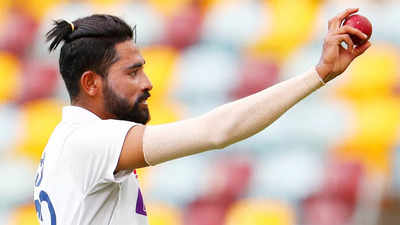
NEW DELHI: India pacer Mohammed Siraj was practicing in Australia during the 2020-21 tour when he received the devastating news of his father’s death. The heartbreaking message was conveyed to him by Virat Kohli and Ravi Shastri. Overwhelmed with grief, Siraj rushed to his hotel room and broke down.
Siraj had the option to return home to be with his family during this difficult time. However, he ultimately chose to stay with the team, a decision largely influenced by the unwavering support he received from Kohli, Shastri, and other senior members of the squad, who provided him with the emotional strength to endure the ordeal.
Putting the personal tragedy aside, Siraj opted to serve his nation. In the Melbourne Test, he claimed five wickets, playing a crucial role in India’s eight-wicket victory.
Australia batters will find it difficult and have issues of their own
He followed it up with two wickets in the drawn Sydney Test before delivering a stellar performance in the fourth Test, where his five-wicket haul dismantled Australia’s batting lineup, securing India’s three-wicket victory and a historic 2-1 series win.
While Siraj was instrumental in India’s triumph, the pain of losing his father and being unable to say a final goodbye will always linger.
This is where the role of a mental conditioning coach becomes crucial — helping players navigate deeply emotional and challenging moments while maintaining focus on their performance.
With the Border-Gavaskar Trophy approaching, some players will be away from their families for extended periods.
TimesofIndia.com caught up with Jody Martins, a South African mental and conditioning coach, to discuss how he supports players during such tough times, his work with Temba Bavuma, his experience with the Kerala cricket team, his collaboration with star batter Sanju Samson, and more …
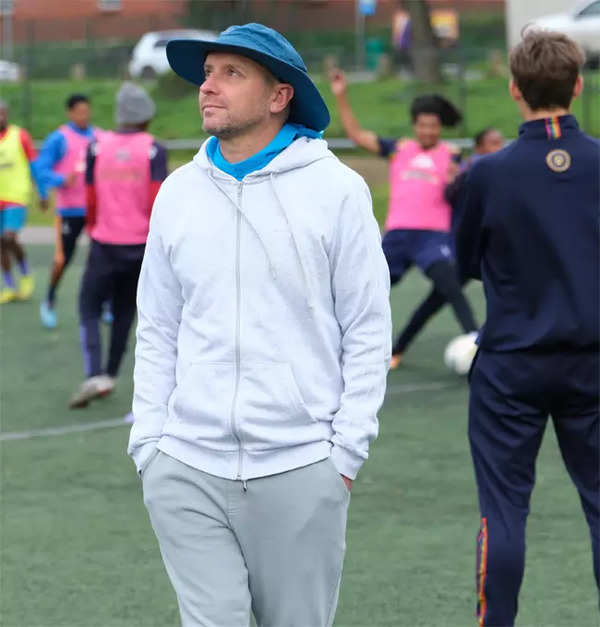
As a mental conditioning coach, what are the core principles you focus on to help athletes deliver peak performance under pressure?
This is a great question. What I have discovered over the years of exploring with athletes how they are able to deliver under pressure is that it comes down to three core things… They are all simple ideas, yet at the same time not always that easy to find and execute under pressure. The first is a robust, well developed identity. Many cricketers assign their sense of self to their batting or bowling position, or their role in the team. This often leads to problems in performance as they struggle to make sense of who they are when they do not play a very specific role.
‘KL Rahul is going to unleash himself in the next three to five years’
The second is for cricketers to develop a deep understanding of how they work, how they get to be at their best and how to do that under pressure. As examples… a cricketer can know that when they are very relaxed before a performance they tend to perform better, so I help them build personal processes to become relaxed before matches. The last is to know how performance works, how it happens. To understand the simplicity of performance it’s easier to use a metaphor. Rain falls, when the conditions for rain to fall is met. Performance tends to happen quite naturally when cricketers are, as generalization, relaxed, and present focused. These three ingredients are core to what a mental performance coach does to help cricketers be at their best under pressure.
How do you approach coaching a team in terms of developing systems, processes, and a performance-driven culture? Can you share some examples from your experience with teams like Kerala?
The first thing is to understand where the team is at. Working with a team that has been winning consistently is different to working with a team that is middle of the pack or right at the bottom of a log. The first thing would be to get insights into how they are busy creating their current performance. Questions like… how do they train, how do they speak? What are the qualities of their team meetings like? What beliefs do they hold about themselves, as individuals in the team and the team itself. What is their mission? …can provide key information about what the next steps for the team can be.
Once we know where the team is at, my role would be to facilitate the team to create their unique processes to level up their performance. This can include creating a clear mission that goes beyond just winning. All teams want to win, the ones with more in the game than just winning tend to find better levels of engagement and focus. Once the mission is established, supporting individuals to align their personal goals with the mission of the team. Lastly, to support each individual to be their best for the team… what that looks, sounds and feels like for them. Often that means that they show up a little more open to being themselves more freely.
You’ve worked with the Kerala Cricket Association, including senior players like Sanju Samson. How do you tailor your mental coaching techniques to fit the unique needs of cricketers at different stages in their careers?
A huge part of my awareness as a mental performance coach is to meet each cricketer where they are at… some cricketers are just starting their careers while others could be in the twilight. Cricketers, as much as any other athlete, tends to seek help when things are not going well for them. So the start of any relationship with a cricketer is normally when things are not working, at some level they are struggling and not performing. Most often it is doubt and worry from poor performance that interferes with their ability to perform.
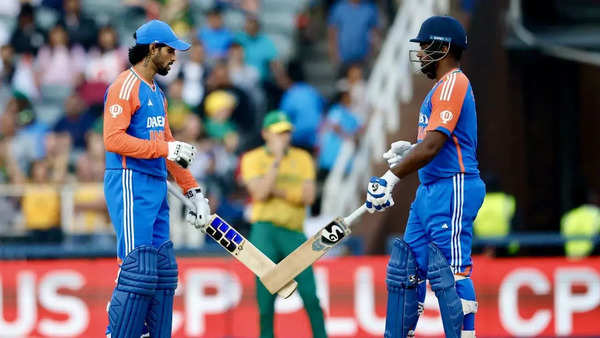
These doubts and worries can be about many things but primary is the need to be successful as it will further or extend their careers through contracts and income. Most often this need is supported by the need to take care of themselves, their family and the future. I see the work I do not as a stop gap or quick fix. I prefer to build long lasting relationships with cricketers, I am not a crutch but new things tend to pop up and interfere with performance at various levels and stages. Initially, we meet regularly (once a week) so I gain a deeper understanding of the cricketer, once this is established we connect on an ongoing basis anywhere from 2 – 12 times a year depending on the needs of the cricketer. Every cricketer has a customized approach.
Sanju Samson has been in and out of the team. How did he mentally drive himself forward?
Sanju was not around much during my time with Kerala, as he spent time away with the Indian team. When he was around, I remember him being curious about things he could do to be more present and in the moment. In my time with the Kerala team there were already those who felt he had to be in the Indian team more consistently, and that he was being messed around with through different batting positions and not playing consistently. Having seen how he has stepped up his performance over the last few years and how he seemed to remain adaptable and patient, even though I am sure at times it might not have been easy. It is great to see his recent success for the Indian team.
How does your approach vary when dealing with young athletes compared to established international players like Temba Bavuma?
Young athletes, depending on their age, are developmentally not always ready for the work I do. The first thing I check on is their readiness to be coached, if not yet ready I suggest that we either wait or might refer them to a relevant other intervention if I am not yet able to support them. Having said that, young athletes at times can still be taught mental performance principles, at times it can be easier for them to apply as their behavior and habits are not ingrained.
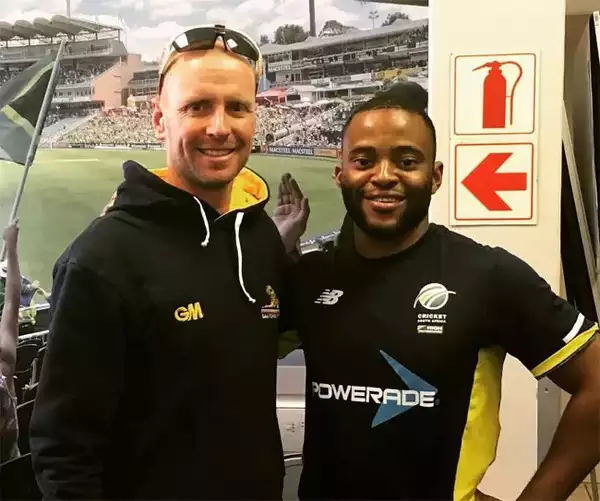
For young athletes that I work with, coaching tends to be more general and wide ranging, often talking through how adjustments we make affect other parts of their lives… in other words we mental performance and the challenges cricket brings to help them be better at cricket but also life. (school and relationships) For international players the work tends to be more specific. It could be about an upcoming tour, struggle against a specific type of bowler, conditions or situation. The most rewarding work is when international cricketers are doing well, yet want to level up and be even better.
With the Border-Gavaskar Trophy approaching, some players will be away from their families for extended periods. How critical is mental conditioning in helping players cope with isolation and perform under such challenging conditions?
At least we are not in COVID anymore where solitary isolation played a massive role in the mental space for a few years. The worst thing a cricketer can do is to make it all about the cricket. This can place so much pressure on performance which will only lead to not being in the optimal condition for performance. Mental performance is critical in all conditions, however when international teams tour and spend long periods away from home the best thing I think they can do is to embrace the experience of the tour they are on… get out see the city you are in… if safe enough of course.
I would imagine most of Australia is. Further to this I would suggest that cricketers have a well established routine to their life where they wake up, eat, rest, recover and sleep in a way that enhances their life. Stress gets amplified when we feel out of sync with ourselves. Lastly, it helps a huge amount when cricketers can maintain contact with the people that ground them… loved one’s, family, friends and maybe a mental performance coach.
In the recent T20 World Cup, South Africa faced a heartbreaking loss against India. From your perspective, how does a mental conditioning coach assist players in recovering from such emotional setbacks?
Emotions are a natural part of the human experience. A large part of ‘dealing’ with emotions is about what we were taught about them. To explain things simply… your brain’s primary purpose is to keep you safe. Emotions are your brain’s alarm system that it uses to inform you of threats or pleasure based on how it perceives the world around you and what is happening inside that world. A way I would work with a cricketer or team after a great setback is to have an honest conversation about the emotions being felt… acknowledging them for being their… accepting that they are there… and then consciously learning from the experience. In this way emotions do not create scars that detract from performance but rather they become a source of strength to be tapped into in future. A great way for cricketers to ‘deal’ better with the highs and lows of the game is for them to actively work on and with their emotions as much as they work on their technique. This is where a mental performance coach can help cricketers greatly.
You have worked closely with Temba Bavuma. Can you share some insights about him as a player and his approach to mental strength?
Unfortunately all client work is confidential. However I can attempt to generalize some ideas that I have learned from him. Some of the things I believe set cricketers like Temba apart is that they look to maximize their game in every way possible and seek out professionals beyond the team environments and support staff to do so. They work on the technical, tactical, physical, leadership, mental, public persona etc. and in each area they look to optimize. They are in charge of their development. They understand that as human beings we are fallible and can make mistakes and are ok with talking about their shortcomings. A huge part of the mental health problems stem from this simple idea, to hold back from being vulnerable.
Elite cricket environments are cut throat. Performance is brutal. So vulnerability is seen as weakness. A sign of mental strength is being able to share openly about yourself. The mental performance coach provides that opportunity so a cricketer can return to the tough edge of performance with less holding them back. I believe Temba is a great example of a cricketer who at times has a tough journey, his game scrutinized to no end. At times ridiculed, yet behind the scenes he has found his way of making sense of what he can control, and where it best serves him to place his focus to enhance his ability to perform.
Cricketers like Mohammad Shami and Mohammad Siraj have faced personal tragedies while on tour. How do you help players deal with such deeply emotional and challenging moments while maintaining focus on their performance?
It is a great challenge to be going through a personal struggle while away from home… Losing a loved one while needing to win a match for your country is surely a big ask on most cricketers. I remember when Jacques Kallis’ dad passed away that in his next Test match at Newlands Cricket Ground he scored a hundred. Afterwards he spoke about how he dedicated that performance to his father. This is a great example of how a deeper meaning is derived from personal challenges.
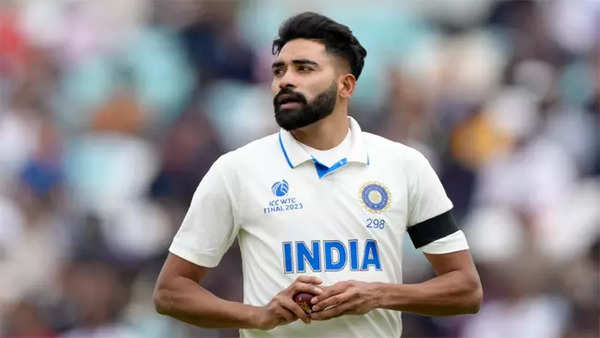
Mental performance coaches can assist cricketers in establishing deep meanings for performances in general and when they face personal challenges. Meanings drive performance. Lower level meanings like… If a cricketer in a challenging moment like this brings meanings like, ‘I shouldn’t be here right now. I should be home. My sadness is too much. I can’t cope.’ to their performance the likelihood of them performing is really low as they are taking their focus away from what is necessary in performance… On the contrary, if a cricketer creates meanings around a challenging moment like… ‘this is for my father, I am going to celebrate him. I am dedicating this moment to a higher purpose of some sort.’ then that can assist a cricketer in focusing towards the present moment and the task at hand, aiding in better performance.
Paddy Upton is credited with playing a pivotal role in India’s 2011 World Cup win through mental conditioning. What are your thoughts on his methods, and how do they align or differ from your own coaching philosophy?
My understanding of what made Gary Kirsten and Paddy Upton successful with the Indian cricket team is that they realized early on that they cannot, in simple terms, tell the Indian cricketers what to do and how to be, what is right and what is wrong or how they should play. They realized that they needed to collaborate with the players individually and as a team more and give them freedom to express themselves and their skills. This idea really resonates well with me and my approach. With elite cricketers it might be easier to take this approach. However, when working with younger cricketers it is often easy to think that, ‘these cricketers don’t know, so I will tell them what to do’. Ultimately it is the cricketer irrespective of their age that walks onto the field, that must make the decisions, play the shots, bowl the ball, read the situation. They are the ones who know best what they like or don’t like, what works and what doesn’t work on the field. I believe in empowering cricketers to make their own decisions, fail and learn.
In your experience, what’s the biggest challenge when trying to get athletes to fully embrace the importance of mental conditioning in sports?
Most cricketers treat mental performance as something to engage with when all the technical work and practice doesn’t give performance. Mental Performance is a key pillar to performance just like technical, tactical and physical preparation. Cricketers tend to only reach out to the mental performance coach when the aforementioned things are not delivering performance.
Cricketers wont say to their technical coach… ‘Coach, I am good, I don’t need to practice today’, or to their strength and conditioning coach, ‘You know what I am good… I don’t think I need to see you for the next few weeks.’ They will do that work everyday. If mental performance is a key to performance it should ideally be worked on daily. This doesn’t mean that they need a mental performance coach looking over their shoulder on a daily basis, but rather have someone that they have an ongoing relationship with to guide them in the mental space, while they do mental work regularly




